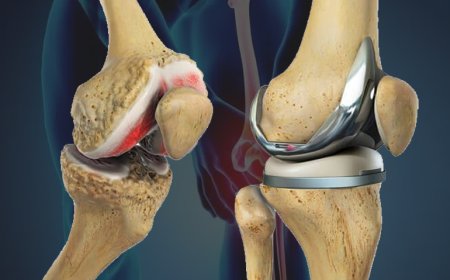Living with Trigeminal Neuralgia: Tips for Pain Relief and Daily Coping
Struggling with the sharp pain of trigeminal neuralgia? Discover practical tips for pain relief and coping strategies to make everyday life more manageable and less stressful.

Living with a chronic pain condition like trigeminal neuralgia (TN) is more than a medical diagnosisits a daily challenge that touches nearly every part of your life. The intense, electric-shock-like facial pain can strike without warning, triggered by simple things like brushing your teeth or feeling the wind on your face.
TN is often called one of the most painful medical conditions known to humans. But while the pain can be debilitating, there is hope. With the right approachmedical care, daily strategies, emotional supportyou can reclaim some control and live more comfortably.
This article offers real-world insights and advice for Living with Trigeminal Neuralgia: Tips for Pain Relief and Daily Coping. Whether youre newly diagnosed or have been living with TN for years, these tips can help make each day a bit more manageable.
Understanding Trigeminal Neuralgia
Trigeminal neuralgia is a neurological condition that affects the trigeminal nerve, responsible for transmitting sensation from your face to your brain. When the nerve becomes irritated or compressed, it sends pain signals that can be sudden, severe, and unpredictable.
People with TN often describe the pain as:
-
Stabbing
-
Burning
-
Electric-shock-like
-
One-sided facial pain, especially around the jaw, cheek, or eye
Flare-ups may last seconds or minutes and can happen multiple times a day. TN can severely impact your ability to eat, speak, sleep, and socializemaking daily coping essential.
Tips for Managing Pain and Coping with Daily Life
1. Know Your Triggers (and Avoid Them)
Everyones TN experience is different. Identifying and avoiding your specific triggers is one of the most effective coping strategies.
Common triggers include:
-
Cold air or wind on your face
-
Talking or chewing
-
Touching your face (e.g., shaving, washing)
-
Stress and anxiety
-
Loud noises or bright lights
Coping Tip:
Keep a pain journal to track what triggers your attacks. Once patterns emerge, you can plan better and reduce exposure.
2. Create a TN-Safe Daily Routine
You cant always avoid pain, but you can structure your day to minimize it.
Ideas to try:
-
Use a soft-bristled toothbrush and warm water for oral care
-
Eat soft, lukewarm foods that require minimal chewing
-
Use straws to drink instead of tilting your head
-
Wrap a scarf around your face before going outside
-
Speak in shorter intervals to reduce jaw strain
Coping Tip:
Establish a predictable routineit helps reduce stress, which is a major pain trigger.
3. Stay on Top of Medications
Many people with TN find relief with medication. The most commonly prescribed drugs are anticonvulsants like carbamazepine and oxcarbazepine.
Tips for medication management:
-
Take meds at the same time daily
-
Monitor side effects and inform your doctor
-
Never adjust dosages without medical advice
-
Explore alternative meds if current ones stop working
Coping Tip:
Use a pill organizer or app reminder to stay consistent and avoid missed doses.
4. Explore Non-Medical Pain Relief Methods
Alongside prescription treatments, you might benefit from alternative pain management techniques.
Options to consider:
-
Warm compresses on painful areas
-
Acupuncture to reduce nerve sensitivity
-
Chiropractic care to address spinal misalignment
-
Massage therapy to ease muscle tension
-
Essential oils (like lavender or peppermint) for relaxation
Coping Tip:
Discuss these options with a pain specialist to avoid treatments that may worsen your symptoms.
5. Eat an Anti-Inflammatory Diet
While no diet cures TN, eating foods that reduce inflammation and support nerve health can help.
Foods to include:
-
Omega-3-rich fish (salmon, mackerel)
-
Leafy greens, berries, nuts
-
Turmeric and ginger (natural anti-inflammatories)
-
Whole grains, legumes, and fresh vegetables
Foods to avoid:
-
Sugar and refined carbs
-
Excess caffeine and alcohol
-
Processed and fried foods
Coping Tip:
Stay hydrated and avoid very hot or very cold foods during flare-ups.
6. Practice Mindfulness and Stress Management
Stress is one of the most common TN triggers. Emotional tension can heighten your bodys pain response and make attacks worse or more frequent.
Try these calming practices:
-
Deep breathing exercises (inhale for 4, hold for 4, exhale for 6)
-
Guided meditation or mindfulness apps like Calm or Headspace
-
Yoga or stretching routines designed for chronic pain
-
Progressive muscle relaxation
Coping Tip:
Spend at least 10 minutes daily in a quiet space focused on your breathing. It can lower anxiety and pain sensitivity.
7. Adapt Your Social Life and Communication
Socializing with TN can be difficult, especially when talking or smiling causes pain. But isolation can worsen emotional health.
Helpful adjustments:
-
Use texting or writing if speaking is painful
-
Let close friends and family know about your condition
-
Schedule social time around your low-pain periods
-
Avoid loud or cold environments during meetups
Coping Tip:
Build a support network that understands your conditionthis reduces pressure and guilt when you need to cancel or modify plans.
8. Get Emotional Support
Living with chronic pain can lead to emotional exhaustion, depression, or anxiety. You dont have to manage it alone.
Options include:
-
Seeing a therapist who specializes in chronic illness
-
Joining online TN communities for advice and solidarity
-
Talking to your doctor about mental health options
Coping Tip:
Consider cognitive behavioral therapy (CBT) proven to help chronic pain patients reframe negative thoughts and build resilience.
9. Explore Surgical Options (When Needed)
If medications stop working or side effects become too much, you may consider surgical treatments:
-
Microvascular Decompression (MVD): Relieves pressure on the trigeminal nerve
-
Gamma Knife Radiosurgery: Non-invasive radiation that targets the nerve
-
Rhizotomy: Destroys part of the nerve to stop pain signals
Coping Tip:
Surgical options should be explored with a neurologist or neurosurgeon specializing in TN. Understand the risks, success rates, and recovery times.
10. Stay Informed and Be Your Own Advocate
Medical knowledge about TN is still evolving. Staying informed helps you speak up for your needs and explore the latest treatments.
How to stay informed:
-
Read trusted resources like Flowcare's guide
-
Ask questions during appointments
-
Track symptoms and bring notes to your doctor
-
Stay current on new research and clinical trials
Coping Tip:
You are the expert on your body. Trust your instincts and dont hesitate to seek second opinions.
Living Well, Even with Pain
Life with trigeminal neuralgia is filled with uncertainties, but its also full of small victories. You may not always be pain-freebut with the right strategies, support, and mindset, you can live fully and meaningfully.
Remember, TN doesnt define you. You are more than your pain.
Conclusion
Living with Trigeminal Neuralgia: Tips for Pain Relief and Daily Coping isnt about finding a one-time fixits about building habits and systems that support you every single day.
From understanding triggers and sticking to medication routines, to eating well and seeking emotional support, each small step you take adds up. No matter where you are in your TN journey, know that relief is possible, and you are not alone.





































